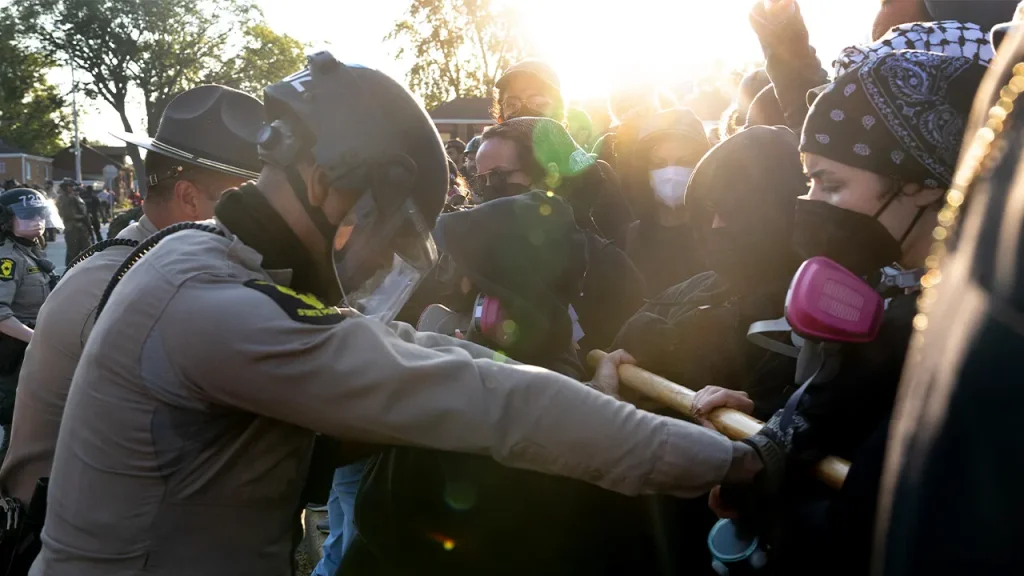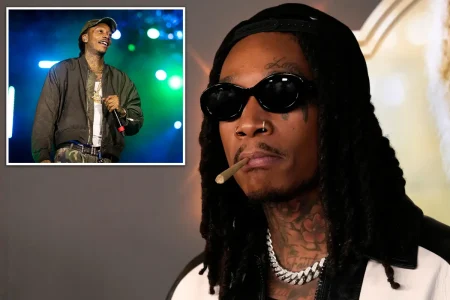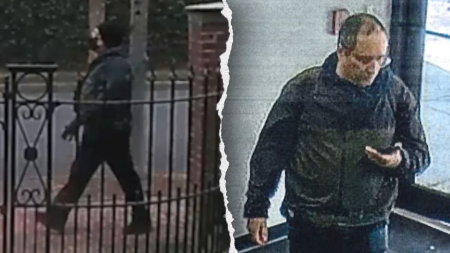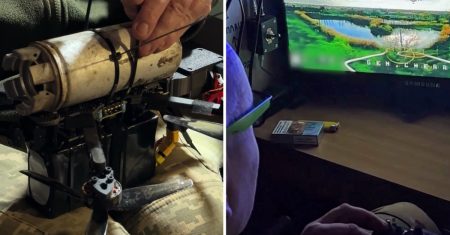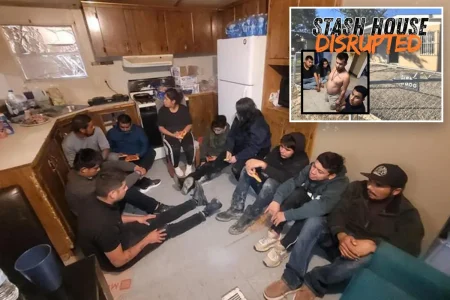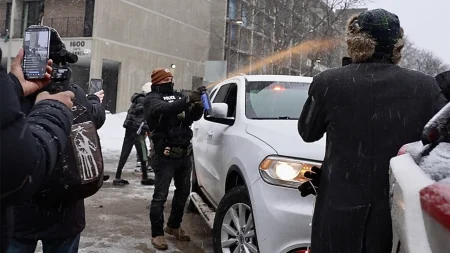Federal Agents Face Violence in Illinois as Immigration Tensions Rise
In a dramatic escalation of tensions surrounding immigration enforcement, Department of Homeland Security Secretary Kristi Noem announced additional special operations personnel will be deployed to Illinois following violent confrontations between federal agents and protesters. The announcement came after ICE officers were ambushed near Broadview, Illinois, where they were rammed and boxed in by ten vehicles during what officials described as a routine patrol. According to DHS Assistant Secretary Tricia McLaughlin, one driver involved in the attack was armed with a semi-automatic weapon, forcing officers who were unable to move to fire defensive shots. The armed woman was identified as Marimar Martinez, a U.S. citizen who had allegedly doxxed agents and posted threatening messages online, encouraging others to target federal agents. Another individual, Anthony Ian Santos Ruiz, was also apprehended for his alleged involvement in the vehicle ramming incident.
The situation around the ICE processing center in Broadview, a Chicago suburb, has become increasingly volatile in recent weeks. DHS officials reported that agents were attacked by individuals throwing smoke, gas, rocks, and bottles during the confrontation. In one particularly concerning incident, an ICE vehicle suffered a flat tire and was subsequently surrounded by what the department characterized as “domestic terrorists,” forcing agents to abandon their vehicle for their safety. The abandoned vehicle reportedly sustained significant damage. The escalation of violence has led to multiple arrests, with five people charged on Saturday in connection with the protests, bringing the total to ten people charged since Friday. The charges included resisting and obstruction, according to the Cook County Sheriff’s Office, as the ICE facility in Broadview continues to be a flashpoint for demonstrations.
The confrontation has sparked a heated political exchange between federal officials and Illinois state leadership. Hours after the attack, Illinois Governor JB Pritzker issued a series of statements on social media, accusing the Trump administration and federal law enforcement of “unprecedented escalations of aggression against Illinois citizens and residents.” Pritzker claimed he had received an ultimatum from what he called “the Trump Administration’s Department of War” to “call up your troops, or we will.” The governor further alleged that former President Trump intended to federalize 300 members of the Illinois National Guard, declaring, “I will not call up our National Guard to further Trump’s acts of aggression against our people.” This political dimension added another layer of complexity to an already volatile situation, with Pritzker asserting there was “no need for military troops on the ground.”
Federal law enforcement officials have responded firmly to the violence. FBI Deputy Director Dan Bongino confirmed the FBI’s involvement in investigating the incident, stating that “trying to intimidate law enforcement will not slow us down.” The Chicago U.S. Attorney’s Office similarly condemned the attacks, emphasizing that the Department of Justice “does not tolerate assaults and obstruction of our brave men and women in federal law enforcement.” U.S. Attorney Andrew Boutros noted that his office has already filed charges against more than a dozen people during what he termed “this surge” and is reviewing cases for additional criminal charges. Assistant U.S. attorneys have been assigned to staff an FBI-led command post daily to monitor developments and “take swift action” against those who assault, obstruct, or impede law enforcement personnel or destroy federal property.
The tensions extend beyond just the immediate confrontations at the ICE facility. Secretary Noem reported that she and her team were blocked from accessing the Village of Broadview Municipal Building during a visit to the area. In social media posts, Noem criticized Governor Pritzker “and his cronies” while sharing video of what appeared to be law enforcement activity with the caption, “Chicago, we’re here for you.” Governor Pritzker fired back, claiming Noem’s efforts were not “in the pursuit of justice” but rather “in pursuit of social media videos.” He accused “Noem’s and Greg Bovino’s masked agents” of throwing chemical agents near an elementary school, arresting elected officials exercising First Amendment rights, and raiding a Walmart, further highlighting the political dimensions of the confrontation.
The current situation in Illinois appears to be part of a broader immigration enforcement initiative. Earlier this month, ICE launched “Operation Midway Blitz,” which the agency described as targeting “criminal illegal aliens who flocked to Chicago and Illinois because they knew Governor Pritzker and his sanctuary policies would protect them and allow them to roam free on American streets.” This operation seems to have intensified the already tense relationship between federal immigration authorities and state officials in Illinois, where differing approaches to immigration policy have created friction. As federal special operations personnel arrive in the state, the situation remains volatile, with law enforcement promising continued enforcement actions while facing both physical resistance on the ground and political opposition from state leadership. The confrontation represents a microcosm of the broader national debate over immigration enforcement, sanctuary policies, and the balance of power between federal and state authorities.





